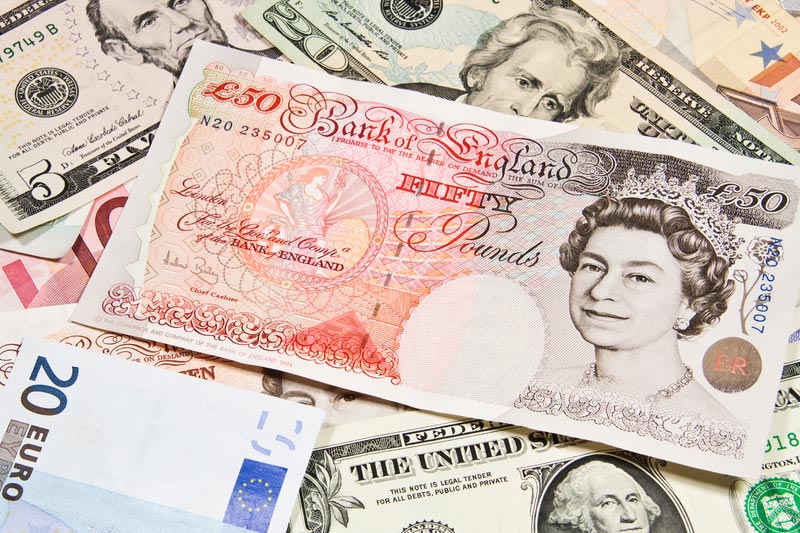Investing.com - The pound fell to its lowest level in three weeks against the dollar on Wednesday after data showed that output in the U.K. manufacturing sector slowed to a 17 month low in September.
GBP/USD was down 0.28% to 1.6167, the lowest since September 10, from 1.6196 before the report.
Cable was likely to find support at around 1.6115 and resistance at 1.6217, the session high.
The drop in the pound came after research group Markit reported that its manufacturing purchasing managers’ index fell to 51.6 last month from 52.2 in August. It was the weakest rate of growth since April 2013.
Economists had expected the index to tick up to 52.5.
New orders slowed to near-stagnation the report said, while new export demand also declined, which Markit said was due to weakness in the euro area economy and the appreciation of sterling against the single currency.
“The strong upsurge in UK manufacturing sector at the start of the year appears to have run its course,” Rob Dobson, senior economist at Markit said.
He added that waning inflationary pressures could prompt the Bank of England to hold off raising rates, even if strong growth continues.
Demand for the dollar continued to be underpinned amid heightened expectations for an early hike in U.S. interest rates.
Elsewhere, sterling was steady near two year highs against the euro, with EUR/GBP at 0.7784, not far from Tuesday’s trough of 0.7765.
The euro came under renewed selling pressure after data earlier on Wednesday showed that factory activity in the euro area fell to a 14-month low in September, led lower by a slowdown in Germany and France.
The euro zone manufacturing PMI ticked down to 50.3 from 50.5 in August.
The German manufacturing PMI slid to 49.9 from 50.3 previously, falling below the 50 level that separates growth from contraction for the first time in 15 months.
The report came a day after data showed that the annual rate of euro area inflation fell to a five year low of 0.3% in September.
The European Central Bank targets an inflation rate of close to but just below 2%.
The weak data added to pressure on the ECB to implement additional stimulus measures to stave off the threat of deflation in the region, ahead of its monthly meeting on Thursday.
The ECB unexpectedly cut rates to record lows last month in a bid to shore up growth in the region.
